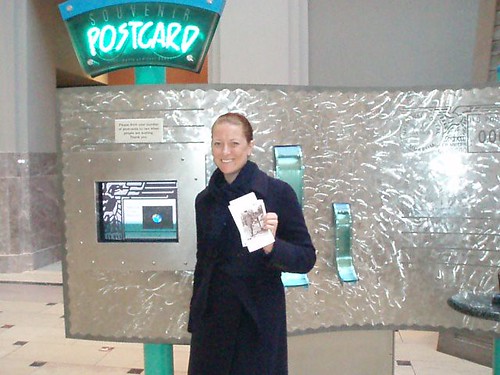Values, Economics and My Love-Hate Relationship with David Brooks
At work I have full access to every newspaper imaginable - a HUGE perk. However, my dedication to this blog made me become a TimesSelect member last month so that I could cut and paste op-ed columns from the NYTimes into my blog and comment for your reading enjoyment. As usual, it is a David Brooks column that has me thinking (every leftist's favorite conservative), but I don't have much to share other than his words. I am curious what you all think of his article so feel free to comment...
The second half of David Brooks' column in the NYTimes for January 27th starts here:
The second half of David Brooks' column in the NYTimes for January 27th starts here:
Smart Democratic analysts are also taking another
look at values issues. There has been a tendency in
Democratic circles to regard values as a sideshow that
Republicans use to fool the working class into voting
against its self-interest.
But over the past year the Democratic polling firm of
Greenberg, Quinlan, Rosner has noted that voters don't
separate values issues from economic issues. They use
values issues as stand-ins and figure the candidates
they associate with traditional morality are also the
ones with sensible economic policies.
In the current issue of The American Prospect, Garance
Franke-Ruta also notes the interplay between values
and economic issues. "Traditional values have become
aspirational," she writes. "Lower-income individuals
simply live in a much more disrupted society, with
higher divorce rates, more single moms, more
abortions, and more interpersonal and interfamily
strife, than do the middle- and upper-middle-class
people they want to be like."
With these sentiments, Democrats seem to be moving
away from materialistic determinism. In past decades,
Democratic political campaigns have been based
primarily on appeals to economic interests. But
especially in the information age, social values and
cultural capital shape a person's economic destiny
more than the other way around.
If you are a middle-class woman, you have more to fear
from divorce than from outsourcing. If you have a
daughter, you're right to worry more about her having
a child before marriage than about her being a victim
of globalization. This country's prosperity is
threatened more by homes where no one reads to
children than it is by big pharmaceutical companies.
Daniel Patrick Moynihan observed that the core
conservative truth is that culture matters most, and
that the core liberal truth is that government can
reshape culture. But liberals have turned culturally
libertarian. Afraid to be judgmental about things like
family structure, they've dropped out of the core
values debate.
Conservatives, especially evangelicals, have had free
rein to offer their own recipe for social renewal:
churches that restrain male selfishness, decency
standards that check hedonism, social norms that
discourage childbearing outside wedlock.
Middle-class Americans feel social anxiety more
acutely than economic anxiety because they understand
that values matter most. Democrats are beginning to
understand this, too.






